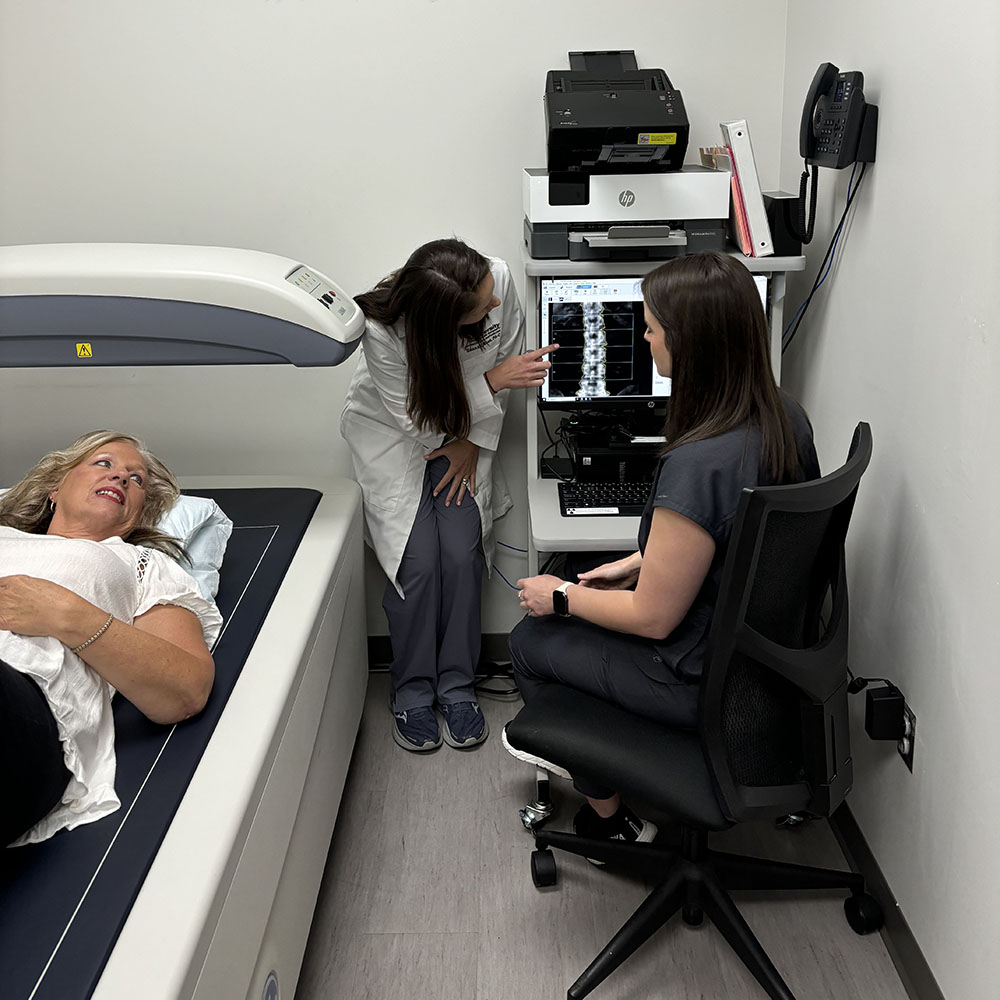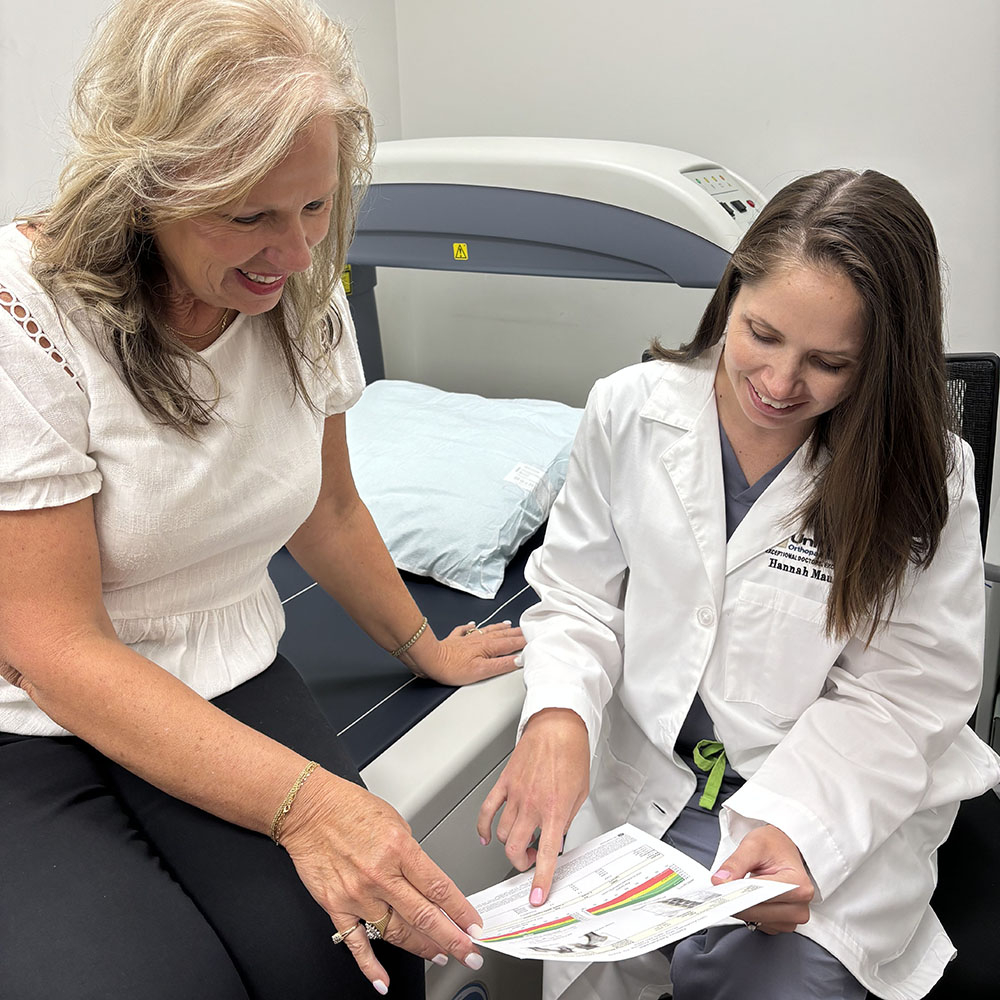DEXA Services

Osteoporosis (or porous bone) is a complex disease that can occur in both males and females, at any age, without symptoms or pain. With osteoporosis, bones become very weak. A sudden minor strain, bump, or fall can result in a fragility fracture of the spine, hip, wrist, shoulder, or ankle. Such fractures are not only painful and frustrating, but they can be debilitating and even lead to life-threatening or disabling events.
Those with osteoporosis are 5 times more likely to suffer a spine or hip fracture.
At University Orthopaedic Surgeons, our goal and commitment is to promote bone health, reduce fracture risks, accelerate healing, and prevent refractures.
Strategies for Bone Health
- Identifying risk factors such as previous fractures, family history, medications, diseases of malabsorption, rheumatoid arthritis, early menopause, and tendency to fall
- Testing, including fracture risk assessment, DEXA bone density scan, and labs
- Appropriate exercise
- Healthy diet and supplementation
- Positive lifestyle habits
- Medication or treatment therapy to increase bone density
- Sticking with your treatment and re-evaluation
Our Bone Health Services
We provide one-on-one assessments, coordinate lab tests, perform bone density DEXA scans, and offer specialized treatment including consultation, physical therapy, and medication (when appropriate).


A DEXA bone density scan may be scheduled to measure your bone mineral density and bone loss. A DEXA scan is a high-precision type of X-ray with low radiation that takes less than 10 minutes to complete. Your bone density score relates directly to your bone strength. If your bone density is lower than normal for your age, it indicates a risk for osteoporosis and bone fractures.
We are proud to be one of the first providers in the region to offer trabecular bone score, an advanced software that significantly augments our screening capabilities for osteoporosis and the associated fracture risk.
Our entire team at University Orthopaedic Surgeons works together in a newly designed environment that puts patient health first. New diagnostic techniques and treatments give us many options to provide the best, cost-effective orthopaedic care for more than 30,000 patients a year. Early diagnosis and treatment of your low bone density can prevent fractures and improve surgical outcomes.
To schedule an appointment, call (865) 546-2663 for our UT Research Park or Sevierville offices or (865) 218-9300 for our West Knoxville office.